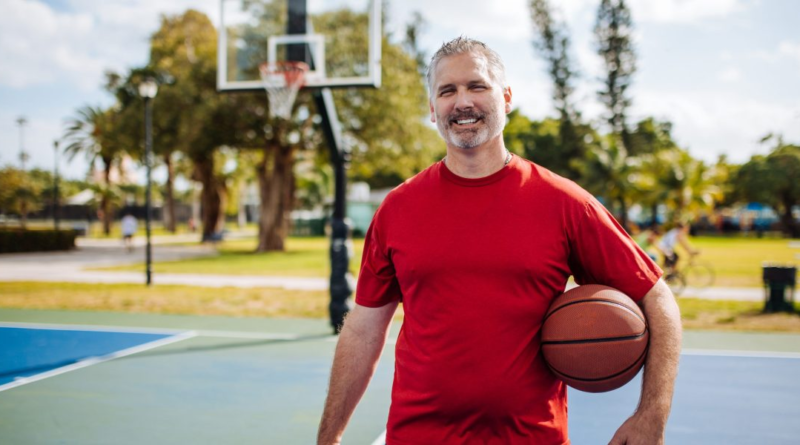7 habits that can help you lose weight—and keep it off—according to experts
Nearly 75% of Americans are overweight or obese, despite a $225 billion dollar weight loss and management industry focused on tools, programs, and products for shedding pounds and keeping them off. But if there are so many solutions available, why aren’t more people successful at their weight loss efforts?
“What we’re largely taught—in society, in the weight loss field, in diet books—is if you just find the right diet, the right guru, the right pill, then it’ll solve all your problems,” says Dr. Scott Kahan, MPH, director of the National Center for Weight and Wellness in Washington, D.C. “You lose the weight, and you’ll live happily ever after. And that’s pretty much never, ever the case.”
Dr. Lydia Alexander, obesity medicine specialist and president-elect of the Obesity Medicine Association says that when experts approach weight loss and weight management, they don’t use a single-strategy method, but instead approach it with a comprehensive care model based on four pillars: nutritional therapy, physical activity, behavioral modification, and medical interventions.
“It gets us away from the fixed mindset that there’s one way to do this,” says Alexander. “It requires understanding it as not a cosmetic issue, but as a medical condition that’s treatable.”
Here are a few tried-and-true tenets that Kahan and Alexander say can help move you toward a healthier weight.
Track your progress
Self-monitoring is a proven strategy for both weight loss and weight maintenance. You might think keeping records means “counting calories,” but any kind of check-in can work to help you build a new habit.
You can keep a record of your weight over time to get an idea of how things are trending, your steps to see how sedentary you are in a day, or the types of foods you’re eating to get an overall picture of your nutrition, such as how many vegetables you eat in a day, says Kahan.
“Generally tracking behaviors is very helpful for people, because it helps keep focus on a change you’re intending to make and be mindful toward working at it,” he says.
Keep a realistic perspective
Reducing your weight and keeping it off is primarily a process that involves small, consistent changes over time. Even if your goal is to lose 100 pounds, you have to start with just a few.
“This is something that doesn’t have to be—and realistically can’t be—automatically solved,” says Kahan. ‘It’s something that happens, sometimes slowly and sometimes a little quicker, but modest steps and modest goals can both lead to meaningful weight loss and weight loss that is reasonably sustainable.”
What’s more, even a small amount of weight loss can lead to significant health improvements, such as improving or preventing diabetes, better mobility and physical functioning, and healthier cholesterol levels. Remembering the big picture instead of focusing solely on the number on the scale and how quickly it’s falling can bolster your spirits as you stay the course.
Have two separate goals: Lose weight. Maintain it
Most of weight management messaging is about losing weight, but maintaining weight takes the same amount of intentionality—or even more, says Alexander.
“A popular misconception is that once you’ve lost the weight, you’re done, and so you can move on,” she says. “A better strategy is to change the mental mindset of your timeline by thinking, ‘OK, I’ve lost the weight, and that was the first piece. The second piece now is keeping my weight at that spot.’ That requires the same type of active involvement as the first piece did. It’s a marathon, not a sprint.”
Build a support system
Kahan says one of the most consistent predictors of long-term progress with weight management is having support and interaction. “That could be meeting with a specialist like myself, it could be meeting with a dietitian, it could be meeting with a trainer, or it could be meeting in an ongoing group session,” he says.
Even just choosing a close friend to check in with can increase your chances of success. Studies show people who keep themselves accountable with a partner as they work toward a weight loss goal may lose 50%–60% more weight than those who don’t.
Make calories count
Nutritional therapy isn’t a simplistic “eat less” paradigm, it’s a shift toward understanding the quality of what you’re eating. For example, whole, fresh food decreases inflammation in your body and can reverse some of the internal malfunction that causes weight gain, says Alexander. That’s why your body feels very differently when you eat empty, processed calories than when you fill up with same amount of calories from whole foods rich in vitamins and nutrients.
“Your body will fight against you more when it’s not getting the nutrition it needs,” says Alexander. “So, you keep on wanting to eat more food as opposed to feeling satiated.”
Move your body regularly (anything goes!)
Physical activity isn’t just for burning calories, it has much deeper benefits specifically tied to weight loss. Walking, one of the simplest forms of exercise, decreases your resistance to insulin, and makes you less hungry. Strength training increases your muscle mass, which aids metabolism, sustaining your calorie balance.
When you move your body during the day, you sleep better. Lack of sleep makes you more likely to reach for fatty and carb-heavy snacks. Your stress levels improve with regular exercise, too. Chronic stress increases cortisol, which increases hunger, which increases blood sugar, in a vicious cycle.
You don’t have to do your exercise all at once, says Alexander. And what you do doesn’t matter. The “right” kind of movement to do is any movement you enjoy.
“Choose the activity you like,” she says. “If you love pickleball, great. If you love walking, wonderful. Pace while you talk on the phone or put away your laundry one sock at a time. If it gets you to move, then that’s your solution.”
See an obesity medicine specialist
Just like you’d go see an orthopedist for a knee problem or an OB/GYN for reproductive system issues, seek out a physician who specializes in weight management for help with your weight loss issues. They can assess whether you may benefit from medications or procedures—or whether you may have a medical reason underlying your weight gain such as a medication side effect or sleep apnea.
“Some people have more significant physiologic challenges that make weight management tougher, some people have more behavioral challenges that will make weight management tougher,” says Kahan. This doesn’t mean weight loss strategies won’t work for you, it just means you have unique barriers that need to be addressed, and a specialist can help with that.”




